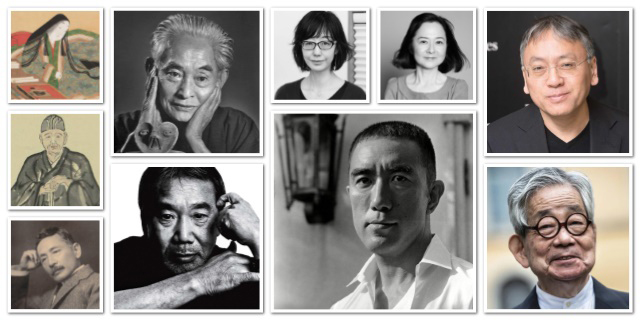کتاب پلیس حافظه
معرفی کتاب پلیس حافظه
درباره یوکو اوگاوا

ویژگی های کتاب پلیس حافظه
- نامزد جایزه «بوکر»
- نامزد «جایزه ملی کتاب آمریکا»
دسته بندی های کتاب پلیس حافظه
نکوداشت های کتاب پلیس حافظه
رمانی تاریک و بلندپروازانه که در مفهوم حافظه و قدرت کاوش می کند.
داستانی استادانه در ادبیات گمانه زن.
یک داستان تمثیلی دلخراش درباره اهمیت خاطرات، و خطر ژرف فراموشی فرهنگی.
قسمت هایی از کتاب پلیس حافظه
مادرم که مجسمه ساز بود، به آرامی یک قلم سنگ تراشی را تیز می کرد یا تکه سنگی را سمباده می کشید و همزمان با همان صدای آرام خود، حرف می زد: «هر بار که چیزی ناپدید میشه، جزیره تکون میخوره. مردم دسته دسته توی خیابون ها جمع میشن و راجع به خاطراتشون درباره اون چیز از دست رفته حرف میزنند. همه غمگین و پشیمون میشیم و سعی می کنیم به همدیگه دلداری بدیم.»
ولی کسی سر و صدا راه نمی اندازه و ظرف چند روز همه چیز فراموش میشه. طولی نمیکشه که اوضاع به حالت عادی برمیگرده، طوری که انگار هیچ اتفاقی رخ نداده و بعد هم دیگه کسی یادش نمیاد اون چیزی که ناپدید شده، چی بوده.
همیشه کمی درنگ می کردم چون می دانستم داخل آن کشوها چه چیزهای زیبا و عجیبی هست. مادرم در آن مخفیگاه، بسیاری از چیزهایی را که در گذشته در جزیره ناپدید شده بودند، نگه می داشت.
مقالات مرتبط با کتاب پلیس حافظه

برترین نویسندگان در «ادبیات ژاپن»
ادامه مقاله
کتاب «پلیس حافظه»: کنترل خاطرات در دستان برادر بزرگ
«یوکو اوگاوا»، این داستان پادآرمان شهری را با الهام گرفتن از کتاب «خاطرات آن فرانک» خلق کرد.
کتاب خوبی بود . و اینکه بعضی بخشها خیلی نا مفهوم هستند قشنگ معلومه سانسور شده .
پیشنهاد نمیکنم ! وقتتون رو تلف نکنین(2کتاب قبلی نویسنده انتقام،پروفسور وخدمتکار رو خونده بودم واقعا از اونهاخوشم اومده بود بعد اومدم سراغ این کتاب )(انتقام رو حتما پیشنها میکنم). کتاب ایده داستانی تازه ای داره (پادآرمانشهری ولی اصلا قابل قیاس نیست با رقبای خودش مثل 1984 یا دنیای قشنگ نو یا کوری و... ) ولی ایده رو نمیتونه خوب پرورش بده و به خاطر همین داستان پردازی ضعیفی داره. در داستان سردرگمی و موضوعات نپخته((مثلا بخش عاشقانه رمانتیک رو به خاطر سانسور هایی ! که داره اصلا متوجه نمیشی هی باخودت دو به شکی که این الان منظوری داره یا نه))باعث میشن دلسرد بشی از ادامه دادن، پایان کتاب هم بازه و اون انتظاری که براش کشیدی رو نابود میکنه. میشه یه هدف هایی از کتاب گرفت مثل ظلم پذیری مردم و اینجور حرفها ولی باز کتاب رو پیشنهاد نمیکنم. از این حجم از کامنتهای مثبت سایت شوکه شدم در سایتهای دیگر برین اکثر کامنتها منفی هستند ! .
قشنگ بود خیلی زیاد
دوسش داشتم برای من مهمترین نکته اش این بود که نباید عادت کنیم به از دست دادن ها
شاهکار عجیب
در ابتدا در مورد خوندن این کتاب تردید داشتم اما حالا که تمومش کردم خیلی خوشحالم از خوندنش. نویسنده در مورد یه جزیره صحبت میکنه که به دستور پلیس هایی به اسم *پلیس حافظه* چیزهای زیادی به مرور زمان در این جزیره ناپدید میشن و حتی خاطرات مربوط به اون چیزها از ذهن افراد ساکن جزیره محو میشه. چیز هایی مثل کتاب، گل رز، عطر، تقویم، عکسهای یادگاری و... و عجیبتر اینکه آدمهای ساکن جزیره خیلی زود عادت میکنن بدون چیزهای ناپدید شده به زندگیشون ادامه بدن. از اوایل کتاب متوجه شدم که منظور نویسنده از ترسیم همچون جزیره ای در ذهن ما یک چیزه: ناپدید شدن ارزشهای انسانی در عصر حاکمیت یک نظام تمامیت خواه.
عالیه واقعا هنر نویسندگی بالا توی این کتاب سرشار .ارزش بارها خوندن رو داره.
موضوع پادارمان شهریو خوب نشون میده ولی بعد از یه جایی داستان روندش کسل کننده میشه اما خوب اگه به اینجور کتابا علاقه دارین خوندنش خالی از لطف نیست
داستان کتاب ایده خیلی جذابی داره و کلیاتش درباره ناپدید شدن یکباره چیزهایی از حافظه ساکنین یک جزیره است. کتاب پلیس حافظه به شدت از کتاب 1984 الهام گرفته و خواندنش برای علاقه مندان 1984 قطعا خالی از لطف نخواهد بود. روند پیش رفتن داستان قدری کنده ولی با توجه بیان خوب سلسله اتقافات دردناک، چندان آزار دهنده نمیشه از طرفی پایان مبهم و بسیار تلخی داره که من رو یاد آثار موراکامی میاندازه. در کل من که از خواندنش لذت بردم، کیهان بهمنی و نشر آموت خیلی خوب از پس ترجمه و نشر بر اومدن و کتاب کیفیت خوبی داره
این روزها فقط این کتاب معنا پیدا میکند
دو سوم انتهایی کتاب با یک ریتم یکنواخت پیش میره و پایان داستان هم از توقع خواننده بسیار پایینتر بود.

















